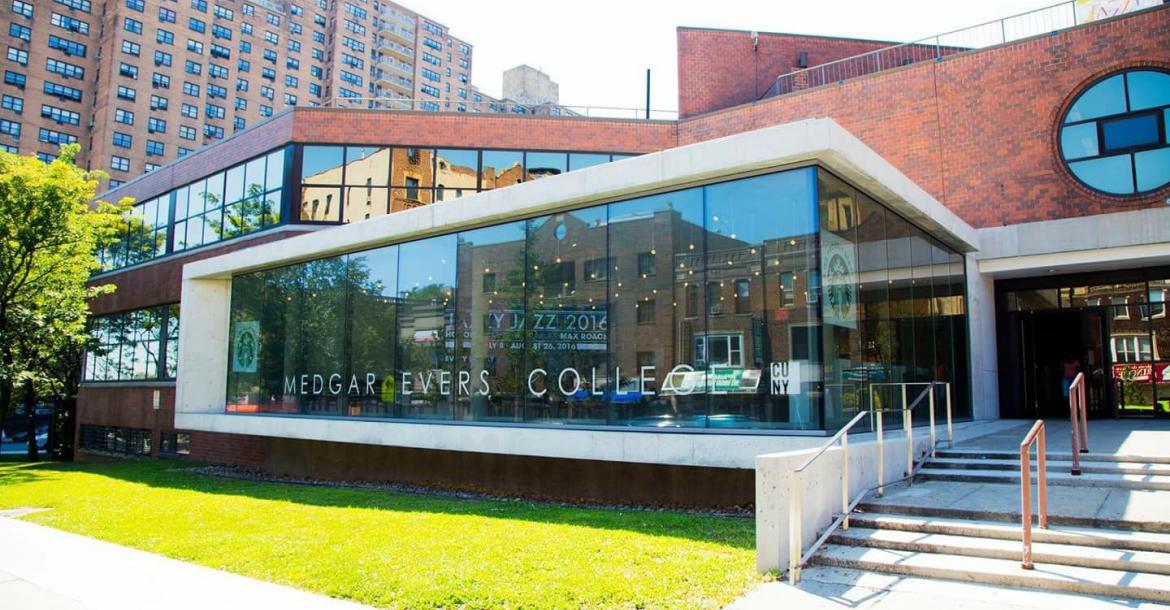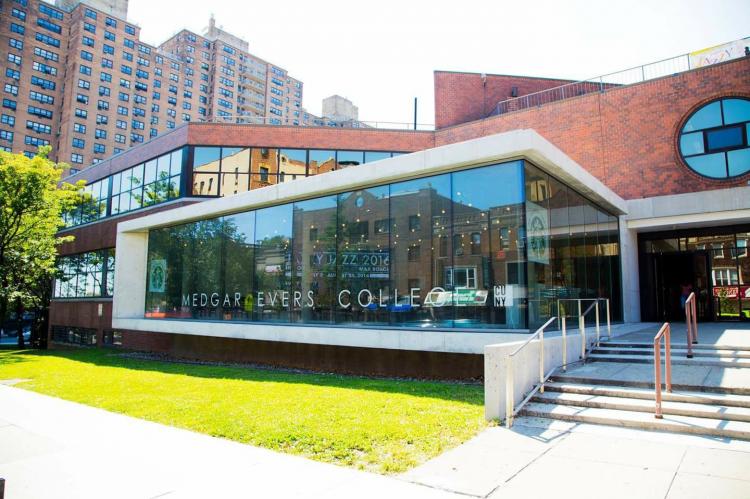Mayoral Forum: The Black Agenda for NYC
With Primary Day just two days away, there’s high anticipation in New York City, with people wondering: Who will emerge victorious to lead the Democrat and Republican parties come November? On April 23, mayoral hopefuls for the Democratic nomination gathered at Medgar Evers College in Brooklyn for a forum hosted by Brooklyn District Leaders, local Democratic clubs, and the college itself. In a city shaped by Black resilience and struggle, this forum was billed as a space to address issues central to Black New Yorkers’ lives: housing, policing, health, education, homelessness, and Black maternal health.
Each candidate had two minutes to lay out their vision for the city, then sat down for a one-on-one with the moderator to get into the details. The sense of urgency was real—Black New Yorkers are tired of waiting for real change.
Things opened with a surprise: before Scott Stringer, former NYC Comptroller, could answer the first question, a masked man rushed the stage shouting about “reparations.” Security had to escort him out. As he left, he insisted he was a legitimate candidate on the ballot.
Here are some highlights from the forum—keep them in mind as you rank your choices on June 24:
Scott Stringer, former NYC Comptroller:
Stringer said he doesn’t support charter schools but would extend the school day for public students. He promised to use eminent domain to boost affordable housing, pointing to Mitchell-Lama as a model. Stringer also called for more police with mental health training and pledged to create a “Rainy Day Fund” to make up for federal cuts that have hit Black communities.
Zohran Mamdani:
Mamdani wants a rent freeze and says he’ll raise $10 billion a year—mostly through taxes on the wealthy—to fund free public transit and city-run grocery stores. He put Black mental health at the center of his plans, arguing that the money to address it can be found if the city is serious. He also promised help for homeowners, aiming to lower property taxes and cut Con Edison bills by 65% to help families build generational wealth.
Michael Blake:
Blake said he’ll address the overflow of homeless shelters and scrap incentives for developers who don’t serve the community. He talked about raising the income threshold for assistance, reforming property taxes, and holding NYCHA accountable for unsafe living conditions. Blake also highlighted the need to extend maternity leave, get more Black doctors into communities, end the stigma around mental health, and overhaul how housing is allocated. He pledged to tackle the inhumanity at Rikers Island, especially for Black and Brown people.
Brad Lander, NYC Comptroller:
Lander talked about writing the next chapter for New York, and said he wants a safer, fairer city—especially for Black New Yorkers. He said his office led the first study on the city’s racial wealth gap, finding that median white income is $277,000 while it’s only $17,000 for Black families. Lander said he’s already helped create affordable housing with 40% managed by Black and Latino asset managers. He called for more accessible childcare and said ending homelessness would make the city safer, pointing to programs that move people into vacant apartments instead of shelters.
Jessica Ramos, State Senator:
Ramos talked about her background as a labor organizer and her work on universal pre-K. She said she believes in progress, not just promises, and wants to strengthen the city’s health safety net. Ramos said the city’s COVID response ignored the diversity of her district, where over 200 languages are spoken, so she built a diverse team. On gun violence, she supports federal action and year-round youth programs. She promised to protect rent stabilization, fight for a rent freeze, and push for fairer property tax laws and better NYCHA management.
Zellnor Myrie, State Senator:
Myrie challenged the other candidates, asking where they were during the fights to save SUNY, stop deed theft in Black neighborhoods, or when gun violence was devastating local blocks. Myrie said he criminalized deed theft to protect Black homeowners and generational wealth, fought to keep SUNY Downstate Hospital open, and wrote the first law in the country to hold gun manufacturers liable for violence. He has pushed for tenant protections, full funding for Right to Counsel, and wants rent boards that won’t pass the burden to working families. Myrie pledged to defend health care funding for Black communities and appoint tenant-first leaders.
Andrew Cuomo, former NY Governor:
Cuomo leaned into his long political résumé—from HUD Secretary under Clinton to three terms as governor. He listed big achievements: passing marriage equality, raising the minimum wage, and pushing bail and discovery reform. Cuomo said only someone with executive experience can run a city this big, and that he’s the one to get it done fast. On housing, he wants to build affordable homes quickly, prioritize people in the community, and help Black families buy homes with down payment assistance. He supports tenant protection programs, says NYCHA needs new buildings instead of patchwork fixes, and wants more support for the mentally ill. Cuomo also argued for more police—paid for by cutting overtime—and better relationships between officers and the community. On education, he supports parent choice and charter schools if public schools are failing and backs universal childcare.
This is just a snapshot of the candidates’ agendas. Do your research, weigh the records, and make sure your vote reflects what matters most to you and your community.


